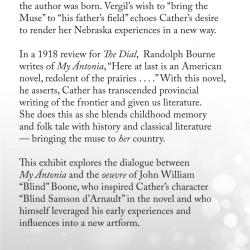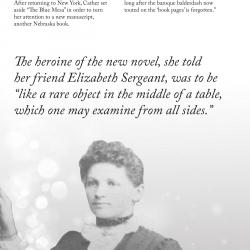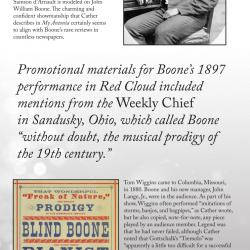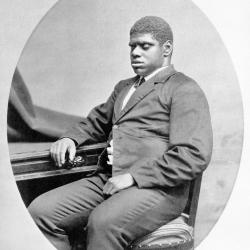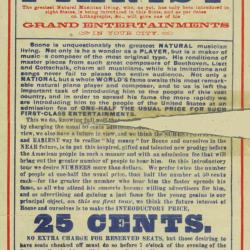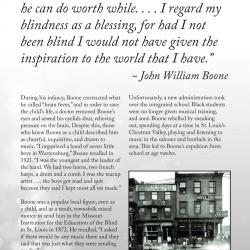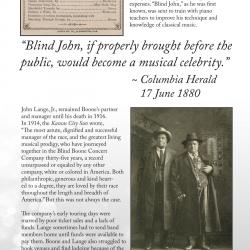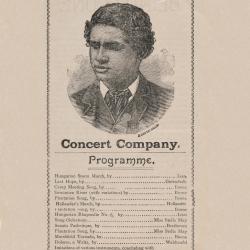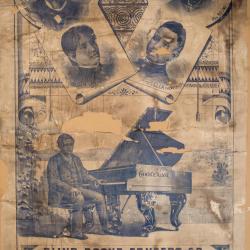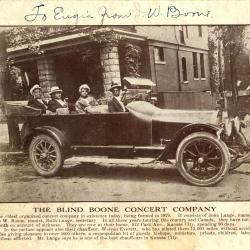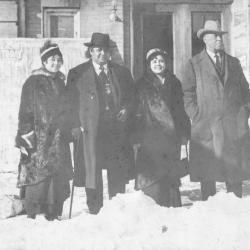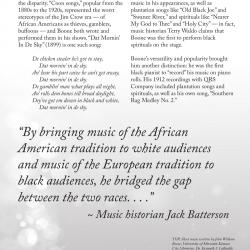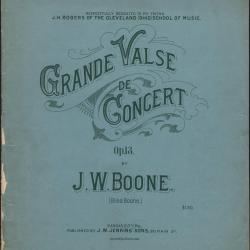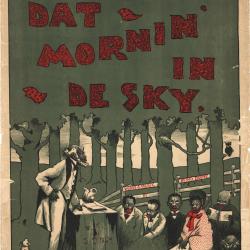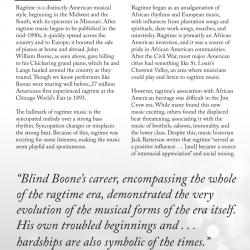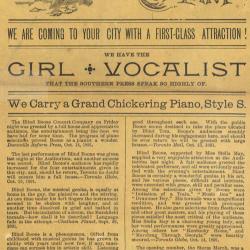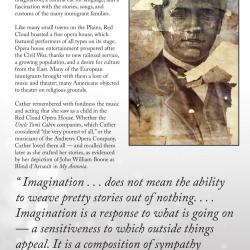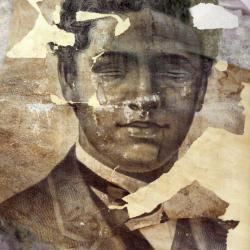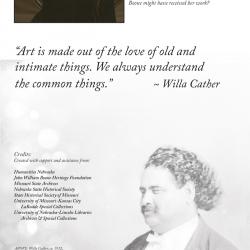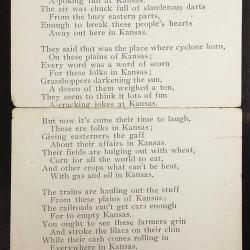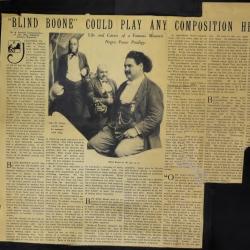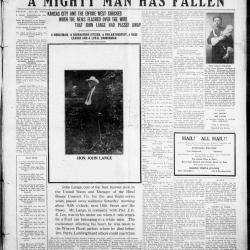John William Boone & Cather
In Cather’s My Ántonia, narrator Jim Burden encounters the ancient Roman poet Vergil (shortened in English from Vergilius) and his long poem Georgics while attending the state university. Written before the Aeneid, a foundational text of all Western literature, the Georgics is an exploration of agriculture; translated from Greek, the title is "On Working the Land." From the Georgics comes the My Ántonia's epigraph, “Optima dies . . . prima fugit.” The poem also introduces the idea of patria, which Cather interprets as “the little rural neighborhood” where the author was born. Vergil’s wish to “bring the Muse” to “his father’s field” echoes Cather’s desire to render her Nebraska experiences in a new way.
In a 1918 review for The Dial, Randolph Bourne writes of My Ántonia, “Here at last is an American novel, redolent of the prairies . . . .” With this novel, he asserts, Cather has transcended provincial writing of the frontier and given us literature. She does this as she blends childhood memory and folk tale with history and classical literature — bringing the muse to her country.
This exhibit explores the dialogue between My Ántonia and the oeuvre of John William “Blind” Boone, who inspired Cather’s character “Blind Samson d’Arnault” in the novel and who himself leveraged his early experiences and influences into a new artform.
This exhibit was developed with the support and assistance of:
Humanities Nebraska
John William Boone Heritage Foundation
Missouri State Archives
Nebraska State Historical Society
State Historical Society of Missouri
University of Missouri–Kansas City LaBudde Special Collections
University of Nebraska–Lincoln Libraries Archives & Special Collections
Many thanks, as well, to John Reed-Torres, who performs the John William Boone music in the link above, at the John William Boone House in Columbia. Reed-Torres performed at our 2018 Spring Conference honoring the publication centenary of My Ántonia, taking the stage to share the best of ragtime, with selections from Scott Joplin, Blind Boone, Arthur Marshall, Les Copeland and more, as well as his own original rags.
Note: larger images of the panels will open if you right-click on the image and open in a new tab.

